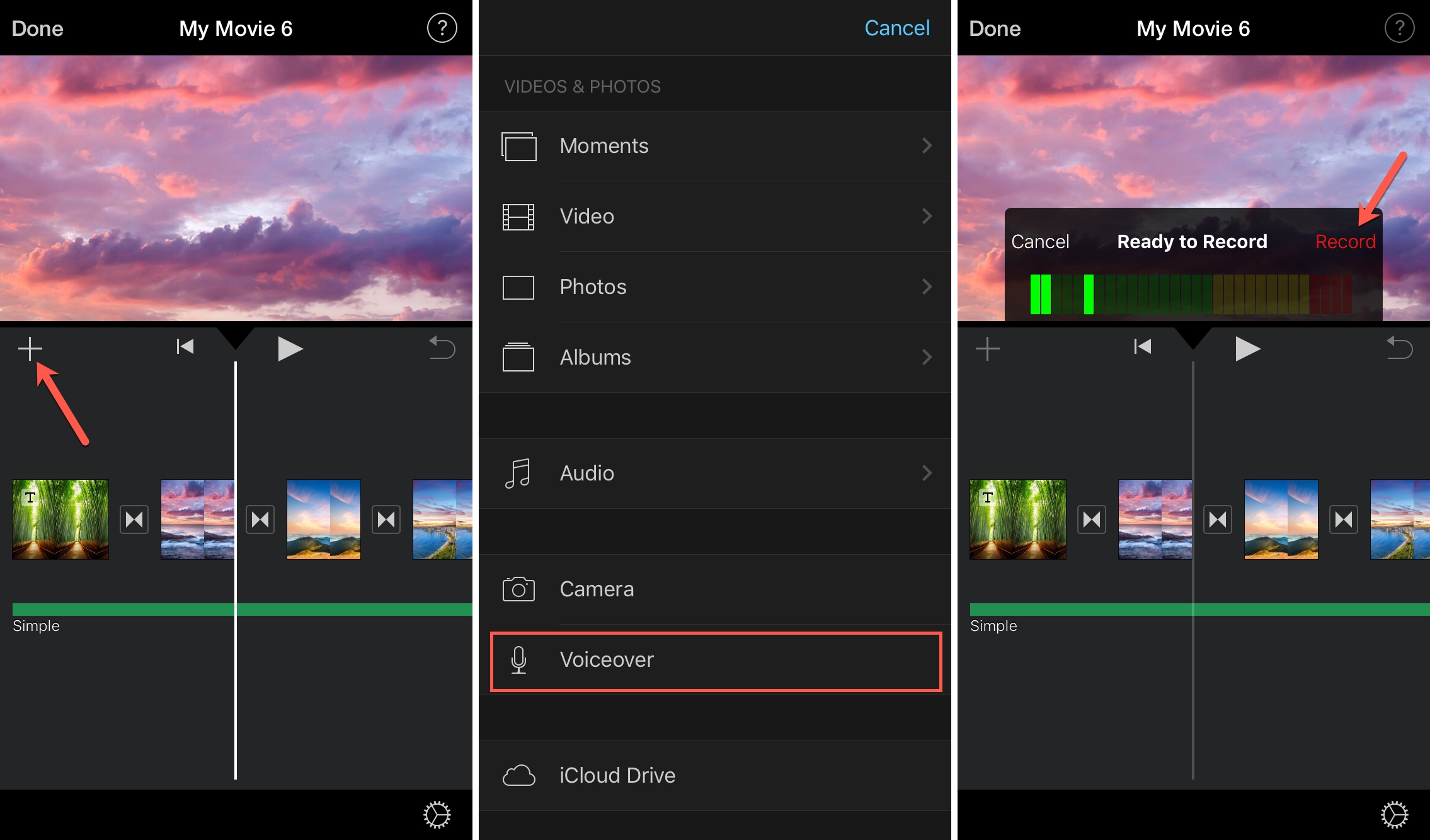Record In Imovie
Step 6: Click the 'Record' button again to stop recording and hit on the 'Close' button to return to the iMovie main window. 2 Record Video on iMovie on iPhone/iPad. You can also record videos in iMovie straightforwardly. Notice that your recorded videos will be saved in your photos library. Learn how to easily record a voiceover on a video or Keynote/PowerPoint presentation using iMovie. Tags: iMovie,how to record voiceover,record voiceover iMov.

You can record video directly into iMovie using your computer’s built-in iSight camera or a tape-based camera or camcorder.
To record video into iMovie:
Imovie Won't Export File

Do one of the following:
If your computer has a built-in iSight camera, click the Import button to open the Import window.
If your computer doesn’t come with a built-in iSight camera, connect a tape-based camera or camcorder, set it to VTR mode (this mode may have a different name on your device), and then choose the camera you want to use from the Import From pop-up menu.
Click Capture.
Choose the disk where you want to store the video you’re about to record from the “Save to” pop-up menu.
You can choose any hard disk that’s connected to your computer. Make sure the disk has enough available storage space for the video you’re recording. It takes about 13 GB to store an hour of standard (DV) video and 40 GB to store an hour of high-definition (HD) video. The amount of free space on each available disk is shown in parentheses next to the disk’s name in the pop-up menu.
Choose how you want to organize the imported video in your Event Library:
To add the imported video to an existing Event, select “Add to existing Event,” and then choose its name from the pop-up menu.
To create a new Event, type a name for it (for example, “Birthday Party”) in the “Create new Event” field. If you want to create a new Event for each day on which the video was recorded, select “Split days into new Events.”
To have iMovie analyze your video for stabilization, or to analyze it for the presence of people, select “Analyze for stabilization after import,” and then choose an option from the pop-up menu:
Stabilization: Analyzes the camera motion in your video so that any shaky parts can be played back more smoothly. It can be time consuming, so if you have over an hour’s worth of video to analyze, you might want to let iMovie do it overnight or while you’re going to be away from your computer.
Stabilization and People: Analyzes the camera motion in your video so that any shaky parts can be played back more smoothly; also analyzes video for people so that you can later sort your video to see just the footage that contains people.
People: Analyzes video for the presence of people so that you can later sort your video to see just the footage that contains people.
If you don’t set iMovie to analyze video for stabilization at this point, you can always do it later. You can also analyze it for people later as well.
When you’re ready to begin recording, click Capture.
The camera begins recording immediately.
When you want to stop recording, click Stop.
A new video clip is created. You can click Capture to begin recording again. Choose whether to add the video to an existing Event or to create a new one, and then click Capture. You can repeat this process as many times as you want.
When you’re finished recording, click Done.